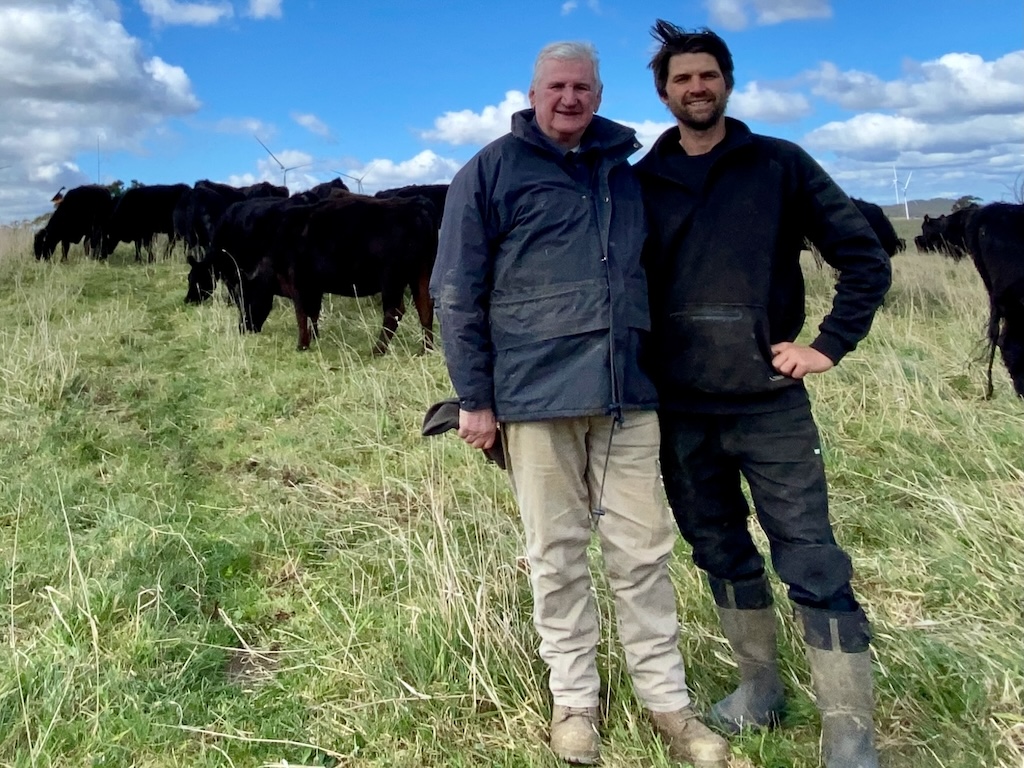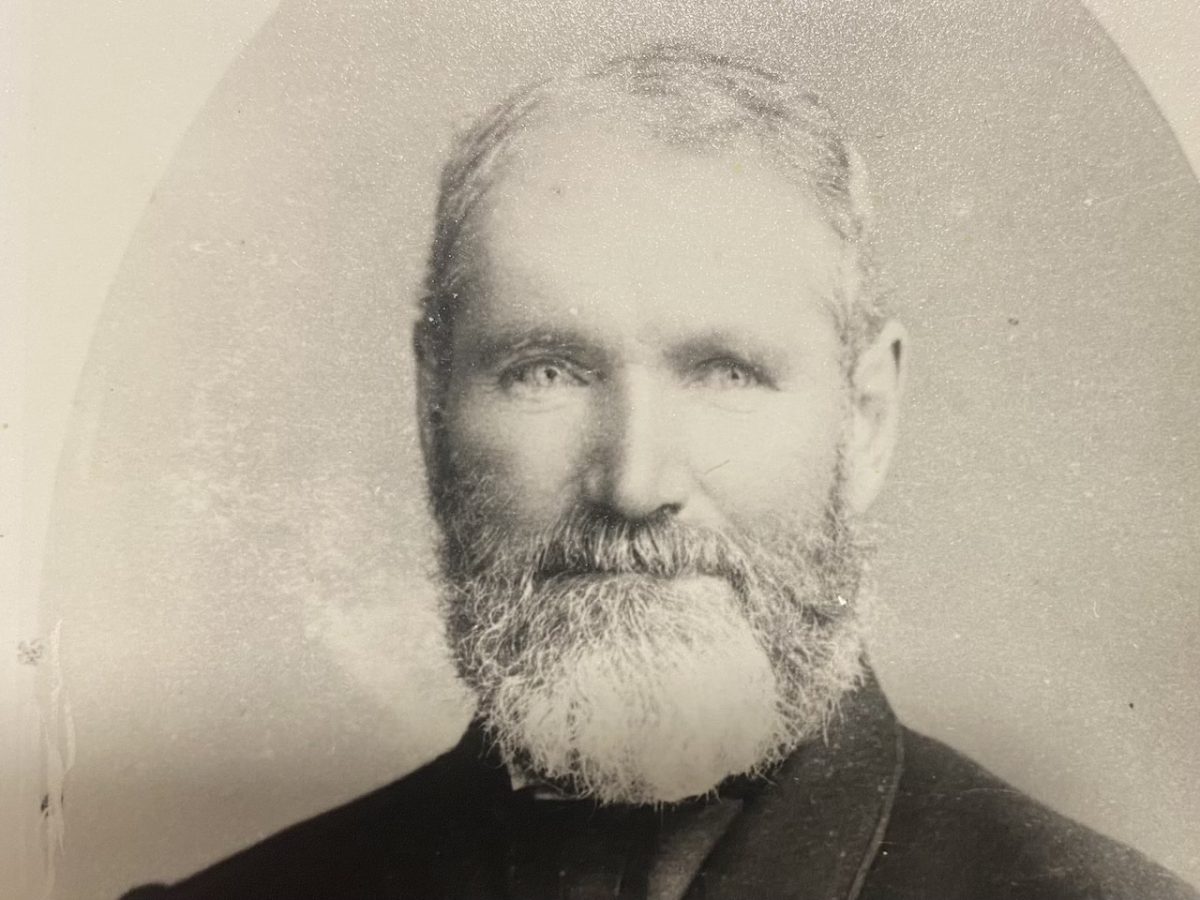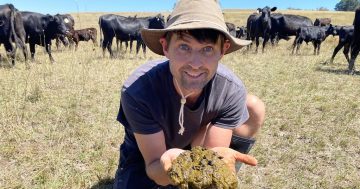
Wayne and Adam Rabjohns with their Angus and Mashona cattle in the background at Leeston, the family’s property at Woodhouselee. Photos: Rabjohns family.
First thing in the morning, Wayne Rabjohns is a motelier in Goulburn, then a farmer in the middle of the day before returning to his family’s motel in the afternoon.
One dynamic day follows another, which he has been doing since 1990 when he bought the Best Western Plus Goulburn motel.
The unconventional business model works well for one of Goulburn’s longest-established families. The founding father, Henry Rabjohns, arrived from Country Devon, England, in April 1849.
The Rabjohns family has run the motel with the same sustainability goals as the farm, ploughing profits back into both. On the north side of Goulburn, the motel had 24 rooms when Wayne bought it. It now has 56 rooms and plans are in hand for an additional 20 rooms.
In more recent years, he and his son Adam have been establishing an intensive cattle enterprise at Woodhouselee, where they practise regenerative farming.
After eating out a paddock of all its grass and weeds, cattle are shifted to the next paddock, while the previous one is left to rest and recover for the remainder of the season.
“We began with Angus cattle, which have difficulty being forced to eat all the weeds, so we have in the last three years cross-bred them with an African breed, Mashona,” Wayne said.
A moderately sized black breed, Mashona originate from the upper parts of eastern Africa and are named after the Shona tribe. Able to survive in droughts, they were milked and bled for food, and had to pull ploughs and produce a calf.
“So, it made them an incredibly hardy breed,” Wayne said.
Henry Rabjohns had some adjustments to make too when he came out to Australia at age 25. He left England as a bootmaker and arrived 14 weeks later in Sydney ready to start afresh as a military policeman. He had sailed with his wife, Jane, 31, and their six-month-old baby, Mary, aboard the “Julinder” and was helping supervise convicts aboard the ship.
Having joined the military police, Henry was stationed in Goulburn in 1852 and given oversight of convicts building roads and small bridges. When he left the police force, he worked as a farmhand for the pioneering Chisholms on the vast colonial estate, Raeburn.
Wayne says at some stage Henry received a grant of land on a back road west of Lake George between Collector and Gundaroo, on which he established an orchard and built a small home to raise his family.

Henry Rabjohns, the son of an engineer in Devonshire, England, came to Australia as a qualified bootmaker, but quickly took up a policing role to oversee convicts building roads.
His orchard included Kentish cherry trees, but few remnants of the home on their property, which they named “Rose and Willow Farm”, are visible today.
“The walls have totally collapsed and have gone, and the roof is still sitting on the ground,” Wayne said. “The remains of one of the pines he sowed near the front gate, I believe, is still there.
“It would have been a pretty tough time. The water supply for the house was drawn from a stone well at the homestead.”
Henry and Jane had eight children: Mary, Priscilla, Helen, Walter, Alice, Frances, Hannah and Arthur. Frances only lived for four months.
Jane, who died in 1876, and Henry, who died in 1908, are buried in Collector Cemetery.
Their sixth-born, Walter Rabjohns, moved to Roslyn and began a more direct family link with Wayne’s family.
“He took up a property, Rosedale, and his boys took up land around that Roslyn area and my grandfather Oswald [senior] bought our current family property, Leeston, when he returned from the First World War,” he said.
Wayne’s father, Os, continued working the land, as Wayne and Adam do today, with a willingness evident through the generations of trying new ways of farming.








